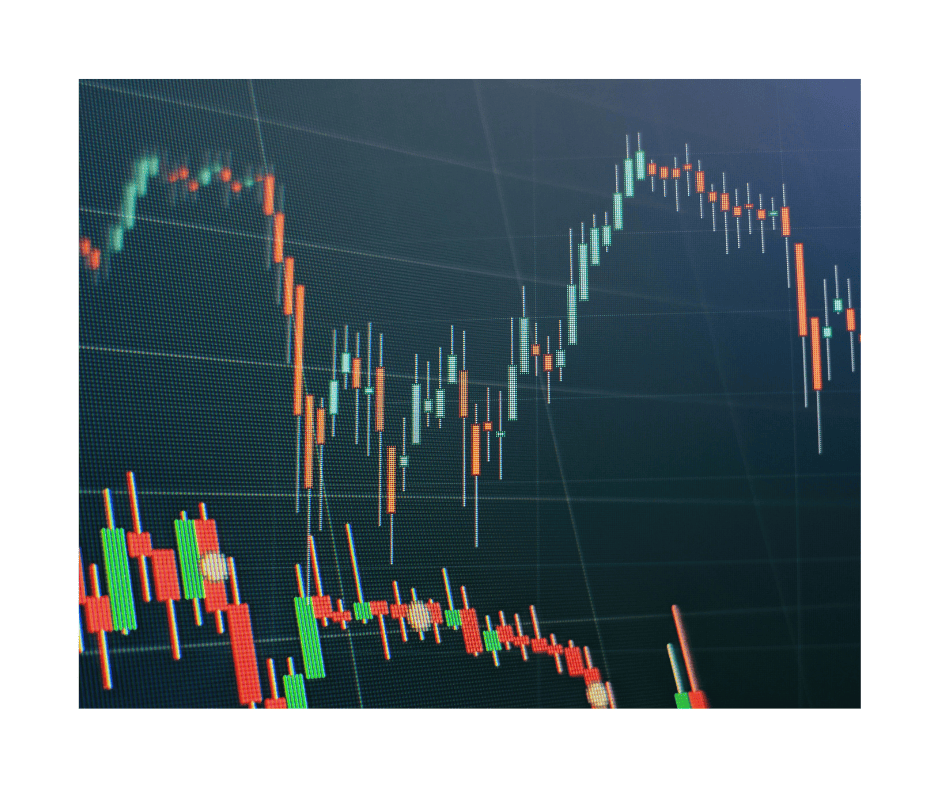Learning from losing trades is an essential aspect of Forex trading.
These experiences provide valuable insights that can help you grow and improve.
Emotions play a significant role in trading, and learning from losing trades teaches us that maintaining emotional discipline is crucial.
Effective risk management is another lesson that emerges from the experience of losing trades.
Waiting for the right trading opportunities is a virtue. Learning from losing trades reinforces patience.
Learning from losing trades encourages traders to diversify their portfolios and reduce risk.
Additionally, continuous learning and adaptation are crucial to staying competitive in the Forex market.
To be successful in trading, you must have mental resilience, as losing trades can be emotionally challenging. It’s essential to learn from them to overcome these challenges.
Learning from losing trades is integral to becoming a better trader, helping you trade the Forex market more successfully.
How Emotions Become Your Enemy
Learning from losing trades has shown me that emotions can be one of the most formidable adversaries you face in the Forex market.
When you’re in the midst of a losing streak, your emotions can run wild, and if left unchecked, they can lead to a series of impulsive and detrimental decisions.
The impact of emotions on trading is profound. Fear often creeps in when a trade starts to go south, causing you to doubt your initial analysis and judgment.

This fear can lead to premature exits, locking in losses that might have turned around if given time.
On the flip side, when a trade starts to move in your favor, greed can rear its head, causing you to become overconfident and reluctant to take profits, ultimately resulting in a reversal and turning a winning trade into a losing one.
Anger and frustration are other common emotions that surface when trades go awry.
These emotions can lead to revenge trading, where you attempt to recoup your losses by taking more significant risks or deviating from your trading plan.
Revenge trading rarely ends well and can lead to even more significant losses.
So, how can you combat the emotional rollercoaster that accompanies losing trades?
Learning from losing trades has taught me that the answer lies in maintaining emotional discipline.
Discipline means setting clear trading rules and sticking to them, no matter what emotions you’re experiencing.
A well-thought-out trading plan is your first line of defense against emotional decision-making.
This plan should include entry and exit points, stop-loss levels, and risk management strategies.
These parameters remove the need for on-the-spot decision-making when emotions are running high.
Learning from losing trades has also reinforced the importance of staying calm under pressure.
It’s crucial to develop the ability to detach emotionally from your trades and view them objectively.
One technique that can help is to visualize your trading decisions from an outsider’s perspective.
Ask yourself, “What would I advise a friend to do in this situation?” This simple shift in perspective can help you make more rational choices.
Furthermore, setting aside time for relaxation and stress reduction outside trading hours can also contribute to emotional discipline.
Engaging in activities like meditation, exercise, or spending time with loved ones can help you maintain a balanced emotional state, making it easier to adhere to your trading plan when faced with adversity.

Learning from losing trades has underscored the detrimental impact of emotions on trading outcomes.
Emotions like fear, greed, anger, and frustration can lead to impulsive decisions that result in losses.
Maintaining emotional discipline through a well-defined trading plan, objective decision-making, and stress-reduction techniques is essential to counteract this.
Recognizing that emotions are the enemy and taking proactive steps to manage them can lead to more consistent and profitable trading outcomes.
To combat this, I learned the importance of maintaining emotional discipline. Setting clear trading rules and sticking to them is essential.
It’s crucial to have a well-thought-out trading plan that includes entry and exit points, stop-loss levels, and risk management strategies.
By following a plan consistently, you can minimize the emotional rollercoaster often accompanying trading losses.
Why Risk Management is Non-Negotiable
Learning from losing trades has impressed me with the necessity of effective risk management in Forex trading.
Risk management revolves around safeguarding your trading capital, ensuring you have the means to continue trading even after a series of losses.
It’s all about balancing between risking enough to make trading worthwhile and not risking so much that you jeopardize your entire account on a single trade.
The lesson learned from losing trades taught me to allocate only a tiny percentage of my total trading capital to any trade.
I recommend that traders risk no more than 1-2% of their capital on any trade. However, the percentage can vary depending on their risk tolerance.
Adhering to this rule limits the potential damage a losing trade can inflict on your account.
Learning from losing trades has shown me that setting stop-loss levels is not optional but rather a crucial part of responsible trading.
However, choosing a stop-loss level isn’t enough; you must also position it strategically.
Placing it too close to your entry point might result in premature exits due to normal market fluctuations while setting it too far away can expose you to more significant losses.

Learning to strike the right balance between protecting your capital and giving your trades room to breathe is a skill that comes with experience and learning from losing trades.
Moreover, risk management isn’t just about setting stop-loss levels; it’s also about diversification.
Learning from losing trades has taught me that putting all your eggs in one basket, or in this case, all your capital into a single trade or currency pair, is a risky strategy.
Diversifying your trading portfolio by trading multiple currency pairs or assets spreads risk and reduces the impact of a single losing trade.
Ultimately, the lesson learned from losing trades emphasizes that risk management isn’t negotiable; it’s a fundamental part of responsible trading.
Why Learning from Losing Trades is Part of the Learning Curve
One of the most profound lessons I’ve gained from learning through losing trades is the acknowledgment that losses are not failures but rather an integral part of the learning curve in Forex trading.
This realization has fundamentally shifted my perspective on setbacks and allowed me to view them as stepping stones toward becoming a more skilled and resilient trader.
In Forex trading, it’s essential to understand that no trader, regardless of experience or expertise, is immune to losses.
Even the most successful and seasoned traders have faced losses throughout their careers.
Instead of viewing losses as insurmountable obstacles, I’ve learned to regard them as invaluable opportunities for growth and development.
Analyzing losing trades has become an essential aspect of my trading routine.
When a trade results in a loss, I make it a point to review and scrutinize the details.
This process involves examining the reasons behind the loss, scrutinizing my trading strategy, evaluating my risk management approach, and considering external factors that might have affected the market.
By dissecting the causes of each loss, I’ve identified recurring patterns and mistakes in my trading.

This self-awareness is crucial because it allows me to pinpoint areas needing improvement.
Whether recognizing that my fundamental or technical analysis was flawed, that I didn’t stick to my trading plan, or that I allowed emotions to cloud my judgment, these insights have been invaluable for refining my approach.
Furthermore, learning from losing trades has taught me the importance of maintaining a growth mindset.
Rather than dwelling on the negative aspects of losses, I’ve embraced them as opportunities for education and self-improvement.
This perspective shift has allowed me to remain optimistic and motivated, even in adversity.
One of the key takeaways from this experience is that it’s essential to avoid the blame game when encountering losses.
Blaming external factors or circumstances beyond our control can be counterproductive.
Instead, learning from losing trades encourages traders to take responsibility for their decisions and actions.
This accountability fosters personal and professional growth, making us more resilient and adaptable traders.
Moreover, recognizing that losses are part of the learning curve has reinforced the importance of patience and perseverance.
Every trader will encounter periods of losses, and these phases can test one’s resolve.
However, understanding that these difficult times are part of the journey has helped me stay committed to my goals and trading plan, even when faced with setbacks.
How Patience Pays Off
Learning from losing trades has underscored the crucial role of patience in Forex trading.
Patience can make the difference between success and failure.

Here are some lessons from experiencing losses and how patience has emerged as a valuable asset in my trading arsenal.
- Waiting for the Right Opportunities: One of the most significant lessons I’ve learned from losing trades is that not every moment suits trading.
- When market conditions aren’t ideal, rushing into positions can lead to unnecessary losses.
- Patience is essential in waiting for high-probability trading setups that align with your trading plan.
- Managing Losing Trades: Patience is invaluable when faced with a losing trade.
- Instead of impulsively exiting a trade as soon as it turns negative, I’ve learned to give my positions time to develop.
- Setting appropriate stop-loss levels is essential, but allowing the market a reasonable chance to turn in your favor is equally crucial.
- Avoiding Emotional Traps: Emotions like fear and greed can be the downfall of many traders.
- Learning from losing trades taught me that patience can help mitigate these emotional pitfalls.
- When a trade starts to move against you, it’s easy to panic and exit prematurely out of fear.
- On the other hand, when a trade is in profit, impatience can lead to exiting too soon and missing out on potential gains.
- Preventing Overtrading: Overtrading is a common mistake that can deplete your trading capital quickly.
- Impatience often drives traders to enter multiple positions simultaneously, hoping for quick profits.
- However, learning from losing trades has shown me that overtrading increases potential losses.
- Long-Term Perspective: Finally, patience extends to adopting a long-term perspective on your trading journey.
- Success in Forex trading takes time, and it’s essential to recognize that it may take time to see consistent profits.
- Impatience can lead to frustration and a hasty departure from the trading world.
By understanding that Forex trading is a marathon rather than a sprint, you can set realistic expectations and stay committed to your goals.

Patience helps you weather the ups and downs, learn from your experiences, and become a more skilled trader.
The lesson learned from losing trades emphasizes that patience is crucial for success in Forex trading.
Continuous Learning from Losing Trades is Essential
Learning from losing trades has underscored the importance of continuous learning in the dynamic world of Forex trading.
Here, we explore how embracing a learning mindset has become a fundamental aspect of my trading journey.
- Staying Informed: Many factors influence Forex markets, including economic data, geopolitical events, and central bank policies.
- Learning from losing trades has shown me that staying informed about these factors is essential for making informed trading decisions.
- Adapting to Changing Market Conditions: The Forex market is highly susceptible to changes in volatility, trends, and trading patterns.
- Learning from losing trades has highlighted the importance of adaptability. What worked in one market environment may not work in another.
- Exploring New Strategies: Forex trading offers many strategies and techniques.
- Learning from losing trades has taught me that being open to exploring new strategies can help diversify your approach and improve your overall trading performance.
- Risk Management Enhancement: Learning from losing trades has reinforced the importance of continually refining risk management strategies.
- Effective risk management is not static; it must adapt to changing market conditions and personal experiences.
- Utilizing Educational Resources: The Forex trading community offers many educational resources, from books and online courses to webinars and forums.
- Learning from losing trades has encouraged me to tap into these resources regularly.
- Keeping a Trading Journal: A trading journal is essential for continuous learning.
- Learning from losing trades has made me realize the importance of documenting each trade, its rationale, and its outcomes.

Learning from losing trades emphasizes that continuous learning is fundamental to becoming a successful Forex trader.
Why Diversification is Your Best Safety Net
Learning from losing trades has taught me that diversification is a safety net in Forex trading.
While it’s true that you should focus on your strengths and trading strategies, putting all your capital into a single trade or currency pair can be a risky endeavor.
Diversification protects against potentially catastrophic losses and enhances your overall risk management approach.
- Risk Spreading: One of the primary advantages of diversification is spreading risk across multiple assets or currency pairs.
- Learning from losing trades has taught me that trading various instruments can reduce the impact of a single losing trade on your overall account balance.
- For example, allocating all your capital to a single currency pair and that trade goes south can lead to a significant drawdown in your account.
- Reducing Overexposure: Learning from losing trades has also underscored the importance of avoiding overexposure to a specific market or asset.
- Overexposure occurs when a significant portion of your trading capital is tied up in one trade, making your account vulnerable to adverse price movements.
- Adaptation to Market Conditions: Market conditions vary widely across currency pairs and assets.
- Learning from losing trades has made me aware that diversification allows you to adapt to changing market conditions more effectively.
- When one market is experiencing high volatility or unfavorable trends, others may present better opportunities.
- For instance, during periods of global economic uncertainty, safe-haven currency pairs like the USD/JPY may perform well, while riskier pairs may struggle.
- Enhancing Risk Management: Diversification is not just about spreading your capital; it’s also about managing risk more effectively.
- Learning from losing trades has emphasized that diversification should be strategic, not simply scattering capital too thinly.
By embracing diversification as a strategic approach, you can better protect your trading capital and increase your chances of long-term success in the Forex market.

Achieving Mental Resilience is a Must
Learning from losing trades has underlined the critical importance of mental resilience in Forex trading.
The ability to weather setbacks, maintain a clear and focused mindset, and bounce back from losses is not just desirable—it’s a must if you aim to succeed in the Forex market.
- Staying Calm in the Face of Losses: One of the central lessons I’ve gained from learning through losing trades is that maintaining a calm demeanor when faced with losses is paramount.
- Feeling frustrated, disappointed, or anxious is natural when trades don’t go as planned.
- However, giving in to these negative emotions can lead to impulsive decisions and further losses.
- Avoiding Revenge Trading: Revenge trading is a common pitfall for traders who lack mental resilience.
- When a loss stings, there can be a strong temptation to jump back into the market immediately, hoping to recoup losses.
- Learning from losing trades has shown me that this impulsive behavior often leads to more losses and an even more significant emotional toll.
- Developing a Growth Mindset: A crucial aspect of mental resilience is cultivating a growth mindset.
- This perspective shift involves viewing losses not as failures but as opportunities for learning and improvement.
- Learning from losing trades has reinforced the idea that setbacks are an inherent part of trading, and they can provide valuable insights.
- Building Confidence: Mental resilience also contributes to building and maintaining confidence in trading abilities.
- When losses occur, it’s easy to doubt your skills and judgment.
- However, learning from losing trades taught me confidence is vital to success.

- Seeking Support: Finally, mental resilience is about recognizing when you need support and seeking it when necessary.
- Learning from losing trades has taught me that trading can be a lonely and mentally taxing endeavor.
- A robust support system, such as a mentor, trading community, or friends and family, can significantly impact one’s mental well-being.
Talking to fellow traders who have experienced similar challenges can provide perspective and reassurance.
Seeking professional help from a trading psychologist or counselor is also a valid option for those facing severe emotional challenges.
Mental resilience is not just desirable for Forex traders; it’s necessary.
Conclusion
Losing trades are an integral part of Forex trading, and they provide valuable lessons that can help traders grow and improve.
Traders can successfully navigate the Forex market by recognizing the emotional challenges, implementing effective risk management, and viewing losses as learning opportunities.
Furthermore, patience, continuous learning, diversification, and mental resilience are crucial aspects of becoming a better trader.
Losing trades are stepping stones to proficiency and profitability in Forex trading.
Embracing these lessons can ultimately lead to a more prosperous and fulfilling trading career.
What’s the Next Step?
Use this article to evaluate your current trading approach and consider where to improve.
In addition, look for opportunities to use what you’ve learned in your process.
If you need help developing an analysis process, you can use our Six Basics of Chart Analysis. If you’re unfamiliar with the Six Basics, you can learn them here for free.
The “Six Basics” will give you a strong foundation in chart analysis, which you can incorporate with what learning from losing trades can do for you.
In addition, when you get the “Six Basics,” you’ll also get Forex Forecast delivered to your inbox every Sunday.
Forex Forecast includes:
- Trade Ideas and Analysis
- I will show you the trade opportunities I’m watching using the Six Basics of Chart Analysis and Advanced Strategies.
- Case Studies from Around the Web
- Watch how applying the Six Basics worked on some of the best, most profitable trades.
- Trading Education Guides and Videos
- Want to learn most Six Basics techniques and advanced strategies?
- I produce Videos and Guides to help you learn and build a better trading practice.
- Links to New Articles
- I publish new articles on topics traders will want to know about every week, and you can find out when they post.
- Positionforex.com News
- Did something change at positionforex.com? Learn about it here first!
- Links to upcoming webinars
- Attend free webinars to improve your trading.
- And Much More
- Tools, Membership-only Videos, and more will be released in the Forex Forecast.
The best part – it’s completely free.

Frequently Asked Questions
What Is the Forex Market, and Why Is It So Challenging?
Traders trade currencies in the Forex market, which is short for the foreign exchange market.
It’s known for its high liquidity and the potential for substantial profits.
However, it’s also challenging due to its 24/5 availability, rapid price fluctuations, and various influencing factors like economic data, geopolitics, and central bank policies.
Why Are Emotions Considered the Enemy in Forex Trading?
Emotions can lead to impulsive and irrational decisions in forex trading.
Fear can cause you to exit winning positions prematurely, while greed can make you hold onto losing trades.
These emotional reactions can disrupt a well-thought-out trading plan and result in losses.
How Does Risk Management Mitigate Losses in Forex Trading?
Risk management involves strategies like setting stop-losses, diversifying your portfolio, and allocating only a small percentage of your capital to each trade.
These practices help limit potential losses, protect your trading capital, and ensure you can continue trading even after setbacks.
What Role Does Continuous Learning Play in Forex Trading?
Continuous learning is crucial in Forex trading because it helps you stay informed about market developments, adapt to changing conditions, and explore new strategies.
It enhances risk management, keeps you up-to-date with economic events, and ultimately contributes to your long-term success.
Why Is Diversification Important in Forex Trading?
Diversification is essential because it spreads risk across multiple assets or currency pairs.
It reduces the impact of a single losing trade on your overall account balance, prevents overexposure, and allows you to adapt to different market conditions.
Diversifying your trading portfolio is a risk management strategy that can enhance your chances of success.

